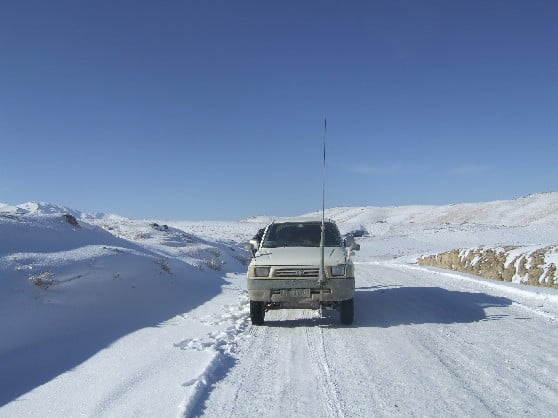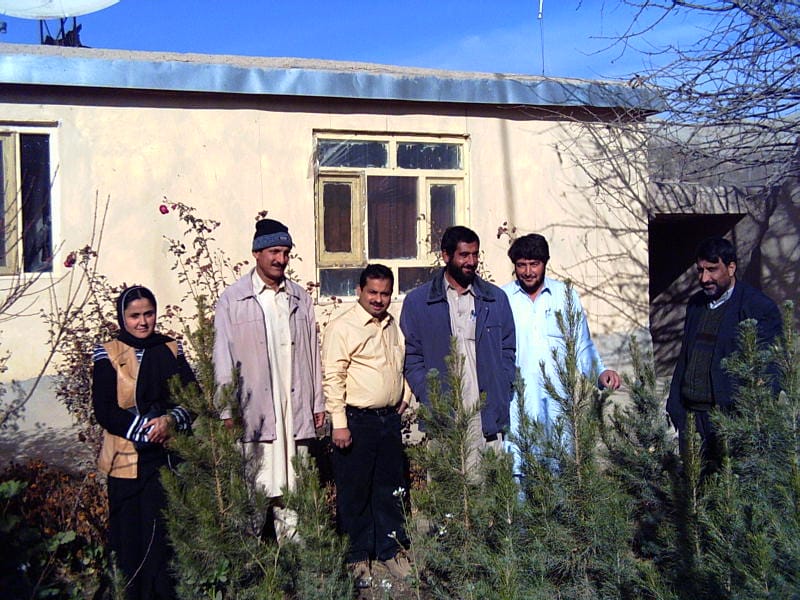I was a Project Officer at Kolkata for Oxfam GB, a well-known humanitarian agency of Britain, when I got an offer from them to work for six months as an International Livelihood coordinator based at Kabul.
I got to know that a friend from West Bengal was posted as Finance Officer in the same office and also my last Regional Manager (a Scottish lady) at Kolkata was Country Manager of Oxfam GB, Afghanistan. I found out one more Indian from Kashmir had also joined a few months back in the Kabul office.
The fear factor, of insurgency and terrorism by Taliban, was absolutely low, as all my contacts had a safe life and perhaps Talibans then seldom targeted civilians and working community of civil society agency.
I left for the assignment in the first week of November 2007.
There was an early ‘jolt’ as I got a mail at the last minute from security department of Oxfam GB’s Kabul office saying that I could be abducted from the airport if I ignored instructions and boarded a taxi of my choice, rather than wait for a driver with a placard of Oxfam logo.
What a horrible email it was! But I had no chance for second thoughts, as I had already boarded an Air India early morning flight from Delhi to Kabul. The journey was quite smooth and pleasant, and I reached office safely around 10 am. It being the start of winter season, I was welcomed by a shower of snow. Though I was prepared with layers of inners and jacket, cap and gloves, it was still very cold.

The Country Manager and Finance Officer greeted me and showed my sitting place in a beautiful two-storeyed office. I was very keen to meet the Security Officer who had literally given me a sleepless night. He turned out to be a very nice and warm Afghanistan colleague, who had just done his duty by sending me that mail.
He gave me a satellite phone and trained me how to use it along with few other gadgets. He took me to a three-storeyed guest house, which had a small gym, badminton court, kitchen, dining and drawing room with round-the-clock internet connectivity and TV.
Office was open five days a week (Sunday to Thursday), with Friday and Saturday being off days. It was a bit difficult to adjust initially, especially during the winter months when the temperature dipped to -20 degree centigrade.
Office provided all employees transport service and also lunch. The food that the cook prepared for us were lovely Afghanistan dishes, biryani, pallou, salad and big tandoori roti.
Being an international worker, my movement was recorded and restricted. I always needed to have a local Afghanistan colleague to avoid any kind of emergency situation.
I found the people of Kabul to be very hospitable and warm. I asked my Indian friends why the Taliban are so different from normal Afghans, who are so friendly and welcoming. I was told the problem in the country is not created by Indians, rather India is trying to rebuild Afghanistan.

A visit to the embassy cleared my doubts. I was told India is the third-largest donor country after the USA and Japan, helping to create a national highway connecting Kabul with all important cities, install transmission lines to bring electricity from neighbouring Uzbekistan, Iran etc. During 2007, there was no street light, but each house of Kabul had a big diesel-operated generator which were run during evening hours for watching television serials and having dinner. Most of the households then used to watch Indian soaps, the prominent one being Smriti Irani’s ‘Ssas bhi kabhi bahu thi’.
I went on field trips to Badakshan field office to see villages of Afghanistan, and suggest changes in their livelihood and income opportunity pattern. It took us almost 12 hours to reach Badakshan from Kabul, with six or seven vehicles travelling together.
The Oxfam GB field office was a calm and quiet place in a small town, with small mountains all around.
Wheat is their common cultivation. They harvest the organically grown wheat for their own consumption mostly, as family size is quite big – many of them having 10 members with six children, husband and wife, and parents.
As the entire country was without electricity, no cold storage was available. Hence traders from neighbouring Pakistan came to purchase surplus agriculture commodities like potato, onion, apple and other fruits and vegetables to store in Peshawar and Karachi and return to Afghanistan again to sell them just before onset of winter.
I discussed with the Country Programme Manager to give Oxfam GB team an idea on livelihood opportunities of small and marginal farmers of India and brought seven colleagues from Afghanistan to Odisha. They stayed in rural areas and discussed with the people and female SHG members about their lifestyle etc.
I rejoined my office in Kabul after the New Year holidays and was having lunch in a hotel where a meeting was being hosted by European Commission. Two hours after I left the hotel around 2 pm, a human bomb killed five journalists. The target was some big gun to draw the attention of world media, but that didn’t materialise.
This was a warning bell for me and my family (daughter and wife) to pack up and return to India as life is more precious than earning money in a hazardous environment. So I just finished the six-month assignment and didn’t continue.
In the last quarter of my stay, I visited Bamyan province, where the famous Buddha statues were destroyed. I stayed in Hotel Bamyan which was located close to that statue. The hotel owner narrated many stories, provided the best food and warm blankets. He was apprehensive that no foreigner will visit Afghanistan in the future, even though it is a beautiful country.
On the request of SDC, an international funding agency, I conducted a three-day Livelihood Promotion and Market Development training for 20 members from Oxfam, Afghanistan and SDC partners with the help of Sanjay Kumar Gupta, MART India.
I still remember the driver who came to drop me at the airport in April 2008 was shocked to know that I was leaving Afghanistan and won’t ever come back. He was almost in tears after having accompanied me to all locations of Kabul and other parts of the country.
They had hoped for a return to peace and normalcy in Afghanistan with the help of many supporting countries and their resources. But the events of the past couple of weeks have dealt a body blow to their aspirations.
I feel for the warm and hospitable Afghan people I met and spent time with a decade and a half ago. My friends deserve to lead a quality life and fulfil their dreams, like any Indian citizen. I hope and pray that the Almighty intervenes and ensures them justice.
(The author, who worked in Afghanistan in 2007-08, is currently working with the World Bank group, as resident representative based at Lucknow)


